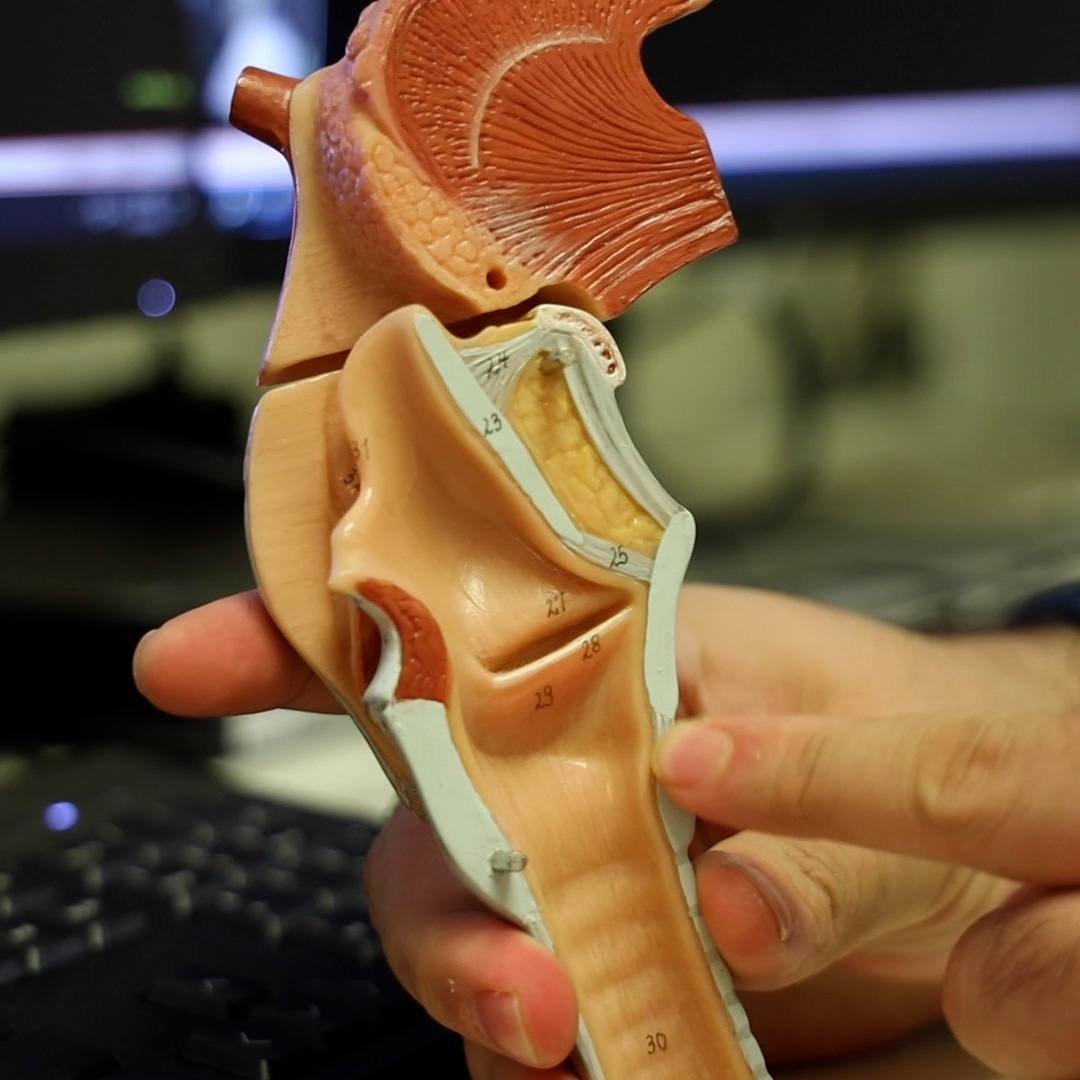-
Featured News
Sprained your ankle — now what?

You step off a sidewalk curb, land wrong after shooting a basketball or stumble on uneven ground. Your ankle pops, twists or crunches, and now you're limping and sore. You may just have sprained your ankle.
An ankle sprain typically happens when you roll your ankle inward, which stretches or tears the ligaments supporting the outer part of the joint. An ankle sprain is the most common injury among athletes and active adults, but it can happen to anyone.
What to do immediately following a sprain
While common, if an ankle sprain isn't treated properly, it can lead to chronic issues, such as ankle instability or pain, limited ability to return to sports and degenerative arthritis. Also, significant tendon or ligament injuries, cartilage damage or even fractures may be missed if a severe sprain isn't properly evaluated.
If you've sprained your ankle, promptly begin following the "RICE" treatment to improve comfort, and minimize the risk of complications and long-term issues:
- Rest
Avoid any activity that causes pain in the ankle. Rest your ankle, and minimize walking for the rest of the day. - Ice
Apply ice to the sore part of your ankle, typically for 15 minutes on and then 15 minutes off, as much as possible for the rest of the day. Continue with 15 minutes of icing three times a day until the pain and swelling subside. Don't apply ice directly to your skin, and use a towel or cloth for protection. - Compression
Using a compression sleeve, elastic bandage wrap or brace on the affected ankle can prevent excessive swelling, protect the area from repeated injuries and provide support. Some inflammation is needed for healing, but too much can be harmful. - Elevation
Elevate your foot and ankle at or above the level of your heart as often as possible for the rest of the day. This will help control pain and decrease swelling.
Depending on the severity of your symptoms, for the first one to two weeks:
- Continue with RICE, gradually reducing the steps as pain and swelling decrease.
- Take over-the-counter medications, such as acetaminophen, ibuprofen, naproxen or aspirin, if you can safely take them. To manage pain, consider applying topical medications or patches.
- Start resistance-free, nonweight-bearing, range-of-motion exercises, such as drawing each letter of the alphabet with your foot. Or move your ankle to the compass points: north to south and east to west. Maintaining this range of motion can help prevent long-term stiffness, reduce swelling and help the stretched ligaments heal. Keep motion within your pain-free zone to avoid making the injury worse.
- Gradually return to your normal activities as long as your pain doesn't increase. At first, this includes walking short distances, such as to the bathroom, then progressing to your normal level of walking.
If there's little or no improvement after the first week, consider consulting with a health care professional, such as a sports medicine specialist, your primary care provider or a physical therapist.
What to expect for recovery, additional treatment
Once you've passed the initial recovery period, further treatment depends on the extent of the injury. If it was a straightforward injury, didn't require an evaluation and you did not have any setbacks, you can expect symptoms to last for 10 to 12 weeks as the ligament heals.
Once you've sprained your ankle, it's more susceptible to future injury. An ankle sleeve or lace-up brace can provide added support and stability.
If your sprain was significant, especially if it prompted you to see a health care professional, you may experience a slower, longer recovery that could include:
- A brief period of immobilization and nonweight-bearing with crutches or a knee scooter
- One to two weeks of protected weight-bearing in a tall walking boot
- Physical therapy to help increase stability, strength and balance
- Possible ankle surgery
If your health care professional suspects the injury requires surgery, you'll undergo X-rays and possibly an MRI to determine the extent of the damage. Then you'll be evaluated by a surgical podiatrist or orthopedic surgeon to discuss your injury and surgical options.
You may need surgery if there is:
- Evidence of a complete rupture of one or more of the lateral ankle ligaments requiring repair
- History of repeated sprains and a determination that ligament reconstruction is needed
- An associated injury, such as a partially or completely torn tendon, a fracture, or damage to cartilage in the ankle joint
While an ankle sprain is relatively common, most of the time it heals, and patients and athletes recover with little intervention. Thoroughly addressing any issues early can help you return to your best activity level.
Next steps:
- Learn about Sports Medicine services and treatments, and find a specialist near you.
- See an orthopedic surgeon to discuss options for more serious ankle injuries or long-term effects from an ankle sprain.
- Find out if you should wear an ankle brace to support your injured joint.
Alecia Gende, D.O., is a sports medicine specialist in La Crosse and Onalaska, Wisconsin.
This article first appeared on the Mayo Clinic Health System blog.
Related Articles







